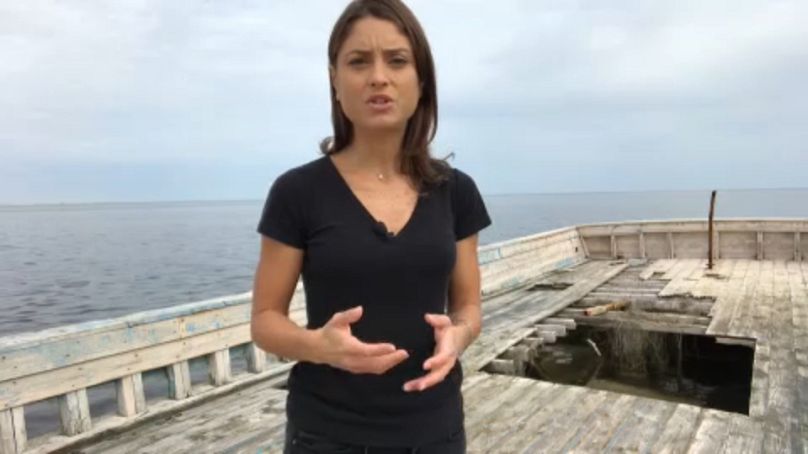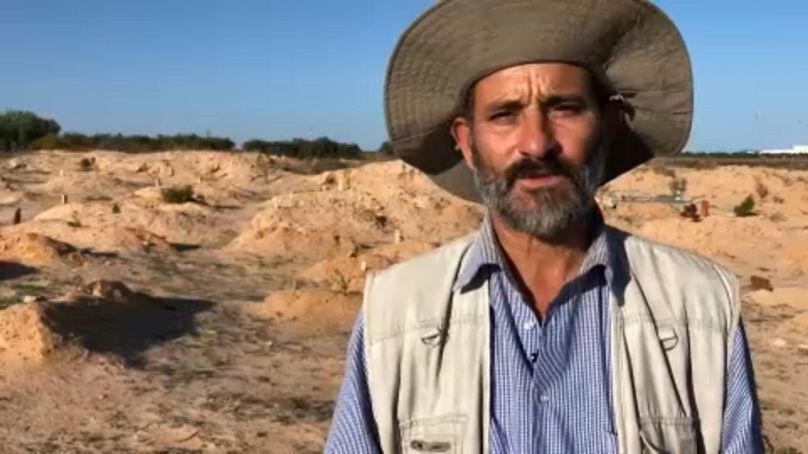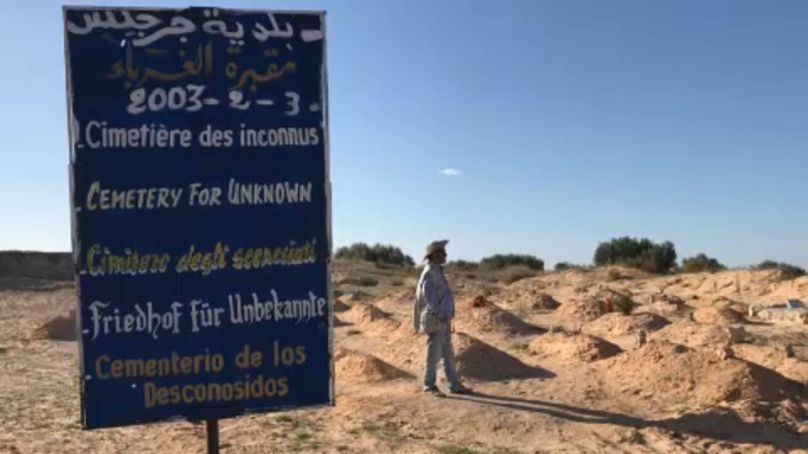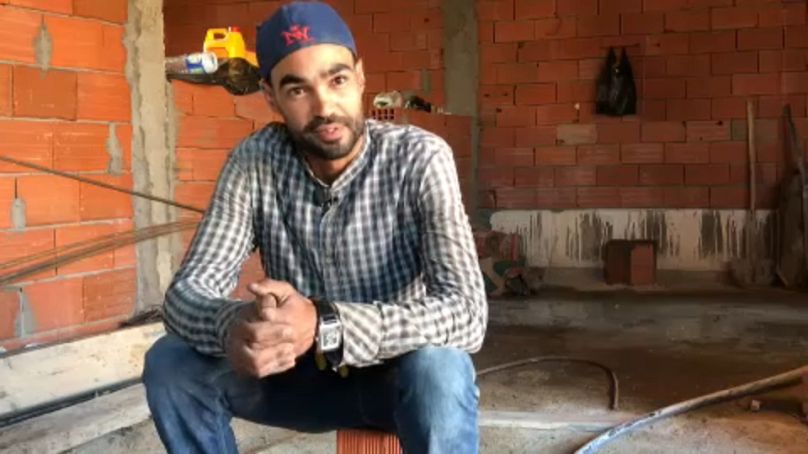Young Tunisians make up the largest number of migrants crossing the Mediterranean Sea. Euronews Correspondent Anelise Borges visited the coastal town of Zarzis in southern Tunisia to find out why so many Tunisian youths continue to risk everything for the chance of a better life outside the country.
Young Tunisians make up the largest number of migrants crossing the Mediterranean Sea.
According to the International Organization for Migration, more than 6,000 have reached Italian shores so far this year.
Euronews correspondent Anelise Borges visited to Tunisia and travelled to the coastal town of Zarzis in the south, near the Libyan border, to find out why so many Tunisian youths continue to risk everything for a chance of a better life outside the country.
Grim reality: Cemetery of the Unknown
For years, graveyard keeper Chamseddine Marzouk has had a regular routine: at least 3 times a week he comes to a cemetery near Zarzis for those who entered his life through tragedy.
_"Here we have buried some 400 people, including children, women and men," _Chamseddine Marzouk told Euronews.
The 'cemetery for the unknown' is the final resting place for migrants who drowned in the Mediterranean Sea while attempting to reach Europe.
Their bodies washed ashore just a few kilometers away in and around Zarzis, in southern Tunisia.
By helping with the burials, and tending to their graves, Chamseddine says he wants to provide the dignity in death these people were probably unable to afford in life.
"Each one of these bodies has a story, and a wish. A dream of another life," Chamseddine Marzouk added.
His own children dreamt of it too; two of them recently boarded flimsy boats for Europe.
"My children left without telling me. And I blame Europe because I had been asking for a visa for both of them, one for Germany and the other with France. And they were refused. And so my kids just left," he said.
Wave of migration continues despite the many dangers
Chamseddine’s kids were not the only ones to leave. Locals say some 600 people departed from Zarzis over the summer.
On the coast, the shells of abandoned migrant boats do little to dissuade those who see no other option, but to leave.
"Those who choose to cross these waters, are often aware of the risks they face. They hear the stories, they see the bodies rejected by the Mediterranean Sea. But many here in Zarzis and across Tunisia say they prefer the risk of dying, than continue to live without hope," said Euronews Correspondent Anelise Borges, speaking off Tunisia's Zarzis coast.
Construction worker Adel Elghoul explained to Euronews that life is hard for most young people in Tunisia and many are willing to take grave risks for the chance of a better life elsewhere.
"Life is increasingly hard in Tunisia. The majority of young people are lost and they want to leave. They believe they will die anyway whether in Tunisia or in the sea, it is similar," Adel Elghoul told Euronews.
Adel talked about a 'catastrophe'. He did this not to describe the day he lost a group of friends who drowned when their boat sank, but rather to explain the current social and economic context for Tunisia’s youth under 35 years of age, who make up 60 percent of the population in the country. Some 36% of them are without a job, while inflation stands at 8%. This explains why dreaming is difficult for far too many young Tunisians, even for those who, like Adel, do have a job.
"In Tunisia there is no such a thing as a dream, our dream is having a house, which should be a right. To build a happy family, which should be a right, to get married, to have kids and a house. Our dreams are very basic in Tunisia. And these dreams make us laugh," Adel Elghoul added.
Arab Spring promises fail to materialise
It’s been nearly eight years since the Arab Spring toppled the regime of Zinedinne ben Ali and brought promises of freedom and prosperity. Promises Tunisia is still struggling to fulfill.
Until that happens, Tunisians are likely to continue taking their chances in the Mediterranean. A treacherous crossing that claimed nearly 2,000 lives so far this year.
Chamseddine Marzouk says he knows more bodies will come and he will be waiting to provide the unfortunate ones with the dignity in death that most of them were probably unable to afford in life.



















